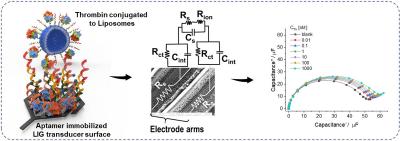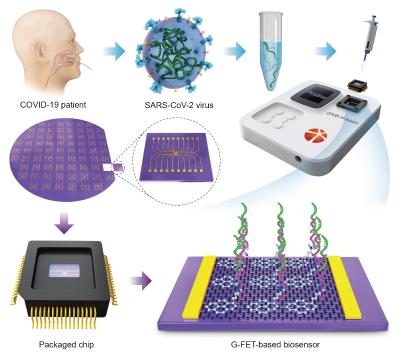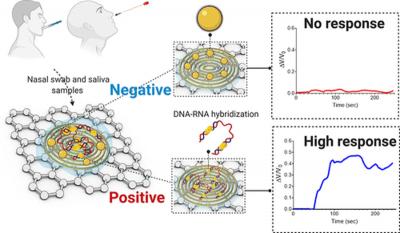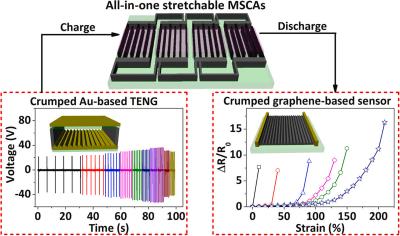
by MBF Admin | Feb 3, 2021 | 2D materials, Aerospace, AGM, Angstron Materials, Audio, Development, Graphene applications, Graphene Sensors, Investment, Medicine, Products, Research, Technical / Research
Scientists in Germany and Korea took Aptamer-based electrochemical biosensors, known for their high sensitivity and low detection limit, to the next level in their new “label-free” design based on laser-induced graphene, thus paving the way for their easy application...

by MBF Admin | Jan 26, 2021 | 2D materials, Aerospace, AGM, Angstron Materials, Audio, Development, Graphene applications, Graphene Sensors, Investment, Medicine, Products, Research, Transistors
A research team at South China University of Technology, Peking University and other China-based universities have developed an accurate, rapid, and portable electrical detector based on the use of graphene field-effect transistors (G-FETs) for detection of RNA from...
by MBF Admin | Dec 19, 2020 | 2D materials, Aerospace, AGM, Angstron Materials, Audio, Development, Graphene applications, Graphene Sensors, Investment, Medicine, Products, Research, Technical / Research
Sparc Technologies, which recently announced the acquisition of Australian company Graphene Technology Solutions (GTS) as well as its plan to become a “significant developer of graphene-based products that will disrupt and transform industrial markets”, has...
by MBF Admin | Dec 15, 2020 | 2D materials, Aerospace, AGM, Angstron Materials, Audio, Development, Graphene 3D Lab, Graphene applications, Graphene Labs, Graphene production, Graphene Sensors, Graphene-Info, Haydale, Investment, Medicine, Products, Research, Stanford, Versarien
The Coronavirus pandemic has been having a significant impact on the graphene market and industry. Even before the pandemic, graphene has already received much attention due to promising antimicrobial properties and demonstrated antiviral efficacy. However, there is...

by MBF Admin | Dec 10, 2020 | 2D materials, Aerospace, AGM, Angstron Materials, Audio, Development, GNPs, Graphene applications, Graphene Sensors, Investment, Medicine, Products, Research, Technical / Research
University of Illinois researchers have used graphene to develop a rapid, ultrasensitive test using a paper-based electrochemical sensor that can detect the presence of the virus in less than five minutes. “Currently, we are experiencing a once-in-a-century...

by MBF Admin | Dec 9, 2020 | 2D materials, Aerospace, AGM, Angstron Materials, Audio, Development, Graphene applications, Graphene batteries, Graphene Sensors, Investment, Medicine, Products, Research, Supercapacitors
An international team of researchers, led by Huanyu “Larry” Cheng, a Professor at Penn State, has used graphene to design a stretchable system that can harvest energy from human breathing and motion for use in wearable health-monitoring devices.According...





